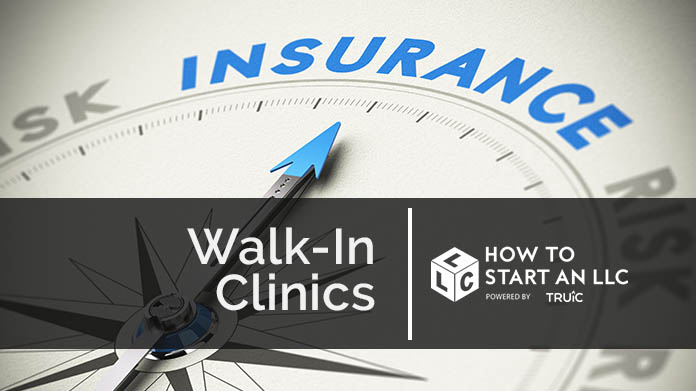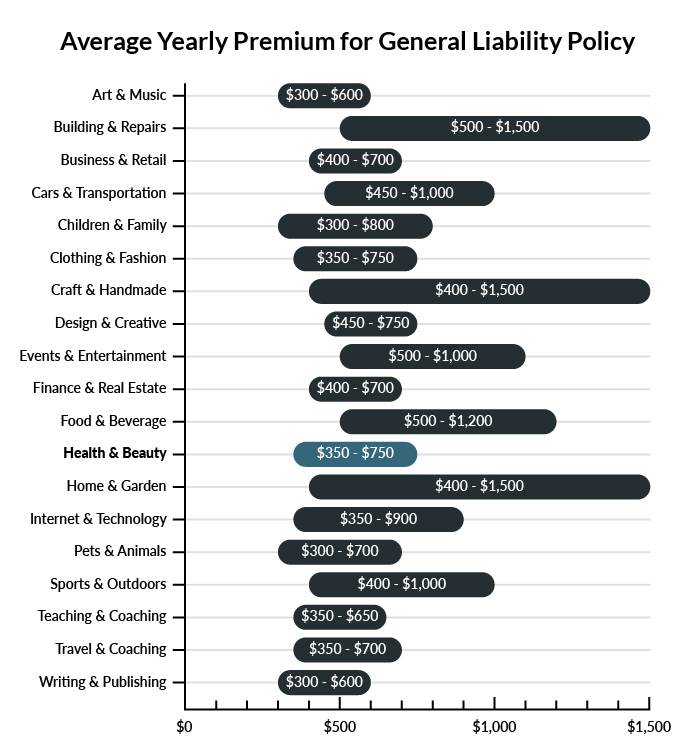Walk-In Clinic Business Insurance
Getting business insurance for your walk-in clinic is essential.
This is because walk-in clinics need to be protected against things like professional negligence claims, personal injuries, and commercial property damage.
For example, a medical negligence claim could be filed against your business as a result of a reckless act or omission that exacerbated a patient’s injuries, or a break-in to your clinic could result in significant property damage.
We’ll help you find the most personalized and affordable coverage for your unique business.

Recommended: Ergo Next Insurance is dedicated to matching small businesses with the right policy at the best price.
Best Insurance for a Walk-In Clinic
General liability insurance is — generally speaking — one of the most important insurance policies for walk-in clinics.
Some of the risks general liability insurance covers are:
- Bodily injury
- Property damage
- Medical payments
- Legal defense and judgment
- Personal and advertising injury
Having said that, walk-in clinics might benefit from purchasing additional types of coverage.
Additional options worth considering for a walk-in clinic include:
- Commercial property — Protects your clinic’s assets in the event that you need to replace or repair your property (e.g., furniture, medical equipment, etc.).
- Professional liability — Covers your clinic’s assets against negligent acts or omissions that worsen a client’s injuries or medical situation.
- Business income — Covers part of your lost income in the event that your walk-in clinic is required to temporarily close down.
- Workers’ compensation — Protects you against employee-related disputes, such as those that relate to personal injuries.
You will also need to decide what type of business insurer you will use; there are two options available for small businesses:
- Traditional brick and mortar insurers — Provide reliable coverage and offer quotes through a specialized insurance agent.
- Online insurers — Offer personalized coverage at a more affordable rate due to having lower operating costs.
Let’s Find the Coverage You Need
The best insurers design exactly the coverage you need at the most affordable price.
Cost of General Liability Insurance
On average, walk-in clinics in America spend between $350 – $750 per year for $1 million in general liability coverage.
Compare the average cost of general liability insurance for a walk-in clinic to other professional industries using the graph below.
Several factors will determine the price of your policy. These include your:
- Location
- Deductible
- Number of employees
- Per-occurrence limit
- General aggregate limit
You may be able to acquire general liability insurance at a discounted rate by purchasing it as part of a business owner’s policy (BOP) rather than as a standalone policy.
A BOP is a more comprehensive solution that includes multiple forms of coverage, such as business interruption and property insurance.

Find the Best Rate
Discover the best coverage at the lowest rate in our low-cost business insurance review.
Common Situations That General Liability Insurance May Cover for a Walk-In Clinic
Example 1: When one of your customers enters your clinic, they slip on slush and ice that was tracked in by a previous customer. General liability insurance would cover the costs of their injuries from the fall.
Example 2: When unloading new equipment for your walk-in clinic in the parking lot, a staff member damages one of your customer’s cars. General liability insurance would cover the costs to fix the vehicle.
Example 3: One of your customers believes they were unfairly treated by your staff due to their ethnicity. General liability insurance would pay for the costs associated with protecting your reputation.
Other Types of Coverage Walk-In Clinics Need
While general liability is the most important type of insurance to have, there are several other forms of coverage you should be aware of. Below are some of the most common types of coverage:
Commercial Property Insurance
If you own the space used for your walk-in clinic, you’ll need commercial property insurance to keep your grounds and equipment safe. This insurance typically covers your clinic from severe storms, theft or vandalism, and fire. From broken windows to water-damaged equipment, this insurance can compensate you for a variety of expenses.
Malpractice Insurance
Walk-in clinics are at risk of malpractice lawsuits in the same way that larger hospitals are. Malpractice covers expenses associated with mistakes made when assessing, advising, or treating a patient.
Workers’ Compensation Insurance
Workers’ compensation is necessary for all employees, whether they work full-time or part-time. Clinics can be a dangerous place to work due to the risk of cross-contamination. Workers’ compensation can cover sudden illnesses or accidents, as well as chronic injuries that stem from repetitive motion on the job (e.g., lifting boxes, sitting for long periods).
Business Interruption Insurance
If your walk-in clinic needs to close due to a covered event, such as a major storm or vandalism, business interruption insurance provides income to owners even when they can’t see patients.
Data Breach Insurance
Medical and insurance fraud are on the rise, so data breach insurance is critical for a walk-in clinic in case a hacker violates patient data in any way. This insurance will help cover the costs associated with identity or insurance theft.
Commercial Umbrella Liability Insurance
This insurance is available for medical practices in case a general liability policy reaches its maximum limits. When it comes to a healthcare business, lawsuits can become extremely expensive very quickly. A general liability policy may only cover a portion of the expenses (based on its policy limits), but umbrella insurance can cover additional expenses above and beyond those limits.
Additional Steps To Protect Your Business
Although it’s easy (and essential) to invest in business insurance, it shouldn’t be your only defense.
Here are several things you can do to better protect your walk-in clinic:
- Use legally robust contracts and other business documents. (We offer free templates for some of the most common legal forms.)
- Set up an LLC or corporation to protect your personal assets. (Visit our step-by-step guides to learn how to form an LLC or corporation in your state.)
- Stay up to date with business licensing.
- Maintain your corporate veil.
Walk-In Clinic Business Insurance FAQ
Yes, absolutely. You will need to first get a quote from an online business insurance provider like Ergo Next Insurance. Ergo Next allows you to then purchase a policy immediately and your coverage will be active within 48 hours.
A typical business owner’s policy includes general liability, business interruption, and commercial property insurance. However, BOPs are often customizable, so your agent may recommend adding professional liability, commercial auto, or other types of coverage to your package depending on your company’s needs.
“Business insurance” is a generic term used to describe many different types of coverage a business may need. General liability insurance, on the other hand, is a specific type of coverage that business owners need to protect their assets.
Yes. The nature of a walk-in clinic means that, as soon as you begin operating, you will open yourself up to a variety of different risks. This includes those that relate to:
- Medical negligence
- Employee injuries
- Property damage
Therefore, we recommend purchasing all of the business insurance policies that you will need before you begin interacting with clients or hiring staff.
Not necessarily. Certain exceptions may be written directly into your walk-in clinic insurance policy, and some perils may be entirely uninsurable.
Yes, an LLC is meant to create a legal barrier between your business and your personal assets and credit. If you haven’t formed an LLC yet, use our Form an LLC guide to get started.
An LLC doesn’t protect your business assets from lawsuits and liability– that’s where business insurance comes in. Business insurance helps protect your business from liability and risk.